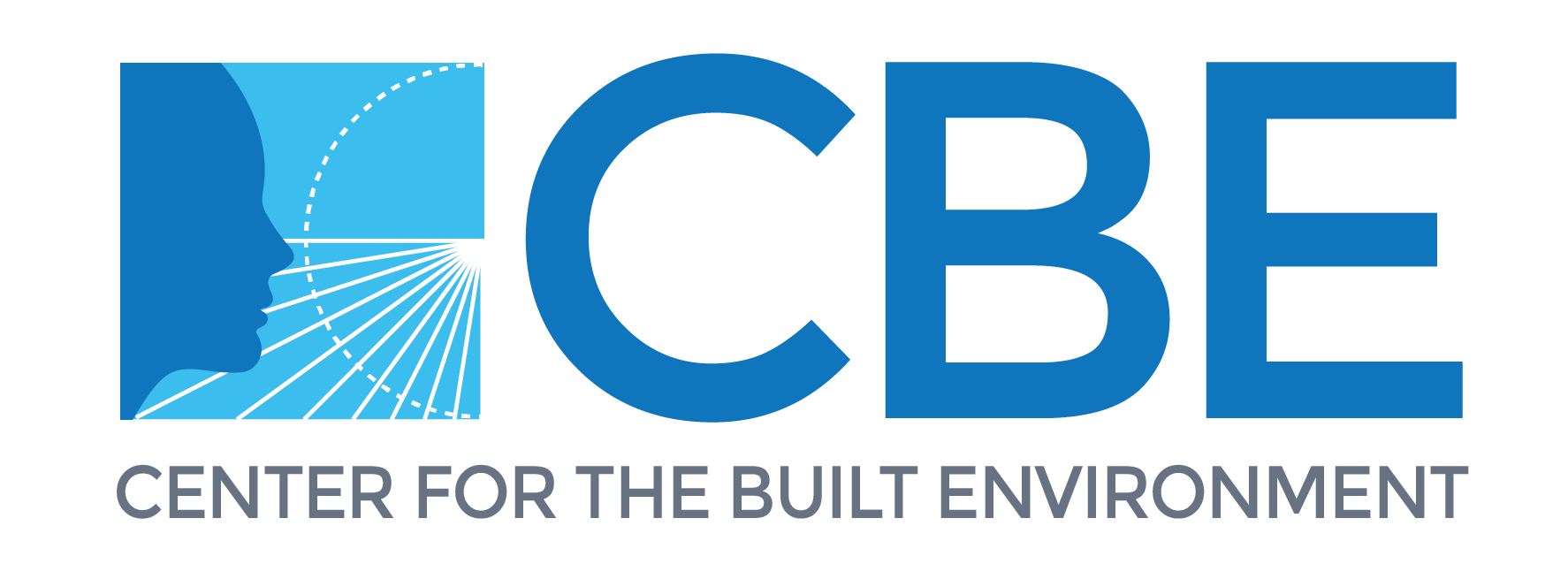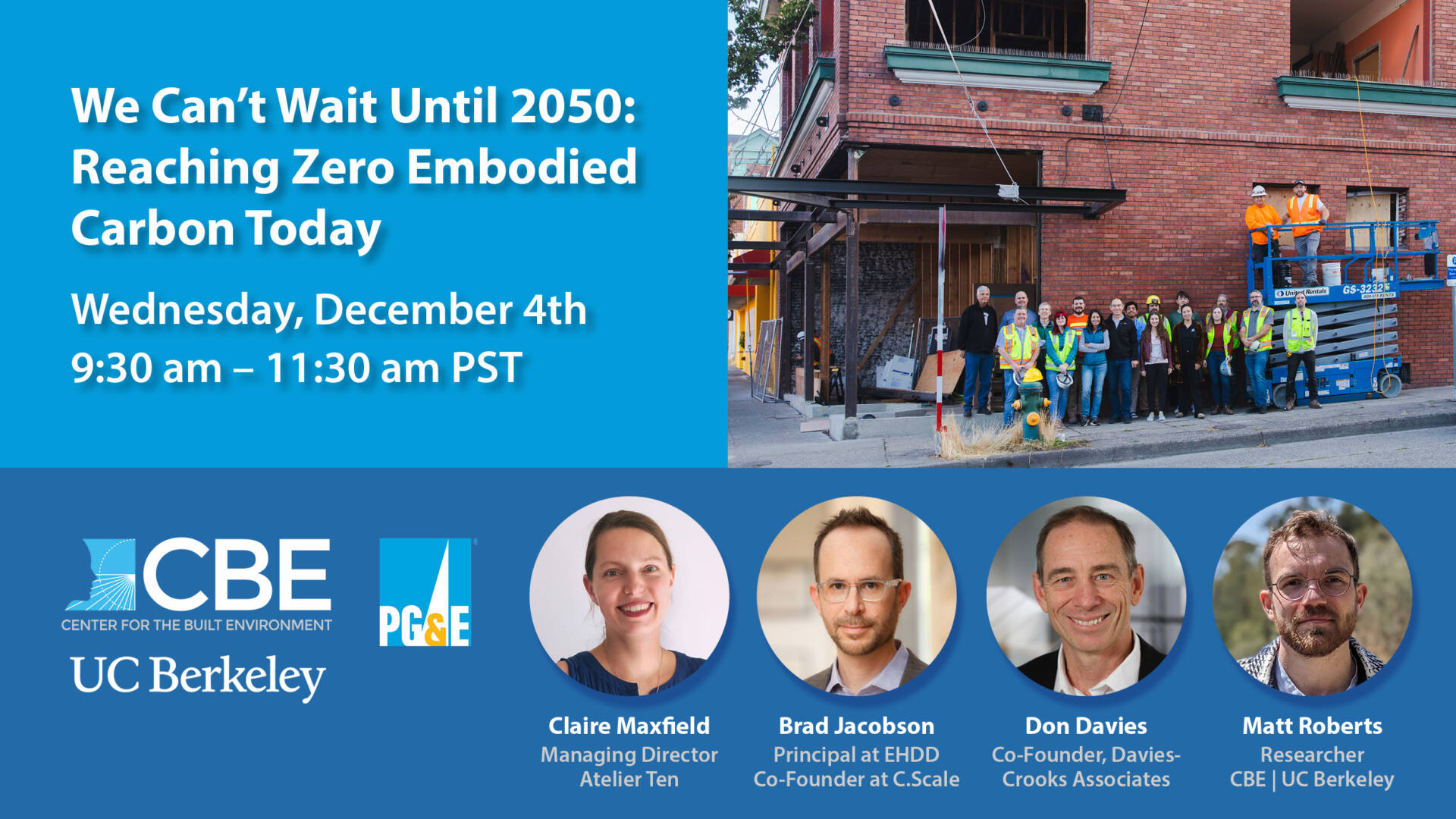
December 4, 2024 9:30 am – 11:30 am PST
A stable climate demands that buildings radically reduce their carbon footprint and move toward carbon neutrality by 2050. Electrification, advancements in efficient decarbonized building systems and acceleration towards a clean grid put zero operational carbon within sight. This session described legitimate pathways toward radical embodied carbon reduction available now, and explored other sources of carbon emissions that must be tackled to bring us to a fully zero-emission built environment. Presentations from a sustainability specialist, an academic researcher, an architect, and a structural engineer/developer provided diverse perspectives, including what targets make sense, how to understand carbon offsets and variations between them, and what would it mean to target “absolute zero carbon” in the timeframe needed.
This session covered current issues faced by the industry, including for example, the conditions under which carbon offsets are legitimate, key barriers to be overcome, and existing tools exist to effectively set baselines, targets, and strategies on embodied carbon.
Speakers and Presentations
-
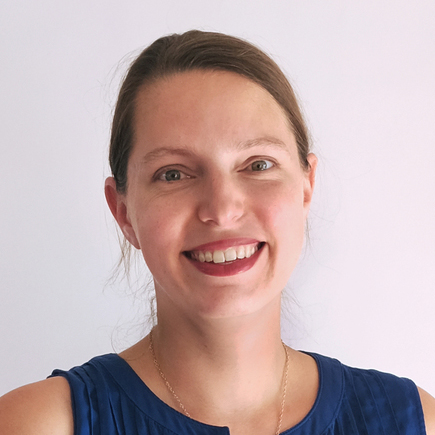
Claire Maxfield, LEED Fellow
Director, Atelier Ten
Presentation: We Can’t Wait Until 2050: Reaching Zero Embodied Carbon Today
As managing director of Atelier Ten, Claire is a recognized leader in the environmental design and delivery of large, complex, environmentally ambitious masterplans, landscapes and buildings. Claire’s expertise in green buildings marries technical excellence with a strong design and environmental ethos. She has extensive expertise in climate-responsive architecture, design for thermal and visual comfort, high performance façade optimization, advanced energy and HVAC systems, water reuse systems, and carbon management. Claire authored Atelier Ten’s recent paper “Atelier Ten’s Roadmap to Absolute Zero Carbon” that discusses the challenges and opportunities the industry faces in achieving zero emissions in operations, materials, refrigerants, construction, infrastructure and landscape. Claire is a LEED Fellow, holds a BA in Architectural History & Environmental Studies from Cornell University, and an M.Arch from Princeton University’s School of Architecture.
-
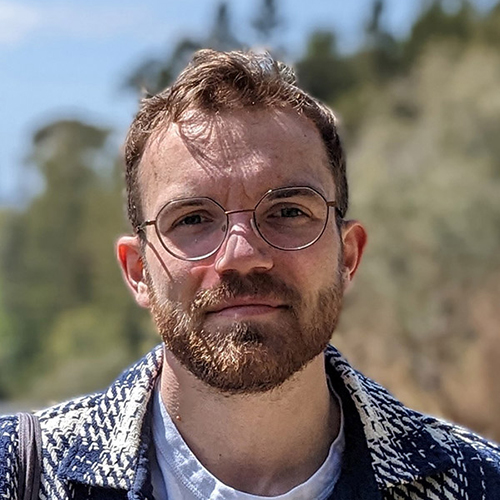
Matt Roberts, PhD
Assistant Researcher, Center for the Built Environment, UC Berkeley
Presentation: Carbon Offsets, Net-Zero Claims and Considerations Beyond Carbon
Matt Roberts is an assistant researcher at the Center for the Built Environment at UC Berkeley. Matt’s research efforts focus on the advancement of life cycle assessment (LCA) methodology for material to building scale applications within the built environment. His current interests include the use of consequential LCA to assess changes in environmental impacts that result from implementing impact reduction strategies at scale and the development of target values to broaden the scope of sustainability. He received his PhD in Architecture and Civil Engineering, a MSc from the University of Bath, UK and BASc from the University of Waterloo, Canada. His PhD research focused on LCA and net-zero carbon building design. Previous research has included the LCA of buildings with on-site storage and energy generation capable of responding to the grid, and LCAs for bio-based building materials intended for use in circular economy applications.
-
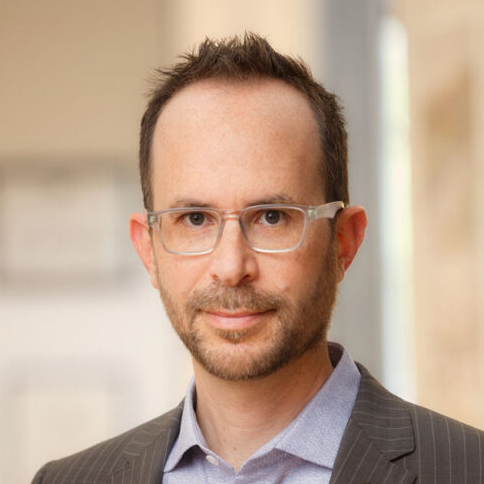
Brad Jacobson, FAIA, LEED AP BD+C, DBIA
Principal at EHDD, Co-Founder at C.Scale
Presentation: Using Whole Life Carbon Tools Early In Design to Achieve Net Zero Carbon Buildings
Brad Jacobson is a principal at EHDD, a West Coast based architecture firm that is leading the way towards a climate positive built environment. He has led the design teams for AIA COTE Top Ten projects including the Net Zero Energy and LEED Platinum certified headquarters for The David and Lucile Packard Foundation. Most recently, He spearheaded the collaborative design-build delivery of a 560,000 SF mass timber office campus for YouTube achieving LEED Platinum certification and 24-7 carbon free energy performance. He is also co-founder of C.Scale, a start-up creating predictive SaaS enabling zero carbon buildings.
-
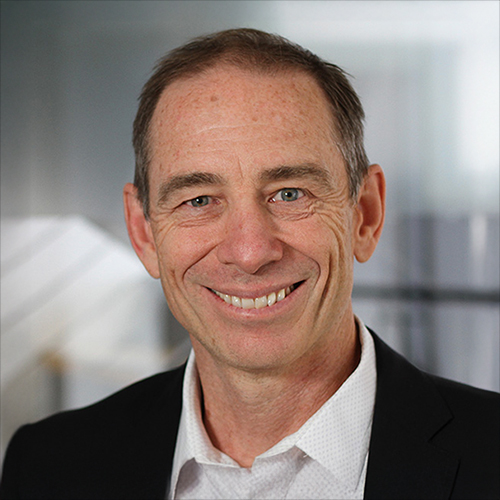
Don Davies
Co-Founder and Principal, Davies-Crooks Associates
Presentation: Hubbard’s Corner Case Study: Is Absolute Zero Possible Today?
An industry champion for the promotion of urban density and low-carbon construction and a 2023 ENR top 25 Newsmaker of the Year, Don helped found the Carbon Leadership Forum, Building Transparency, and the MKA Foundation. He is currently leading the ClimateWorks Foundation Low Carbon Concrete Task Force, is a Senior Fellow of the Design Futures Council, and has been inducted into the UC Berkeley Academy of Distinguished Alumni. The past president of Magnusson Klemencic Associates, his structurally designed projects are in 18 countries, in more than 50 major metropolitan centers and more than 25 are Performance-Based Seismic Designed towers.
Continuing Education
At the conclusion of this course, participants will be able to:
- Demonstrate familiarity with general fundamentals behind zero embodied carbon and carbon offsets.
- Cite a free online tool for early design phase embodied carbon assessment.
- Describe methods for reducing the embodied carbon of building materials.
- Explain the difference between the traditional linear economic model and the circular economy development.
This course is approved for AIA, BOC and CABEC education units.
Organizers

